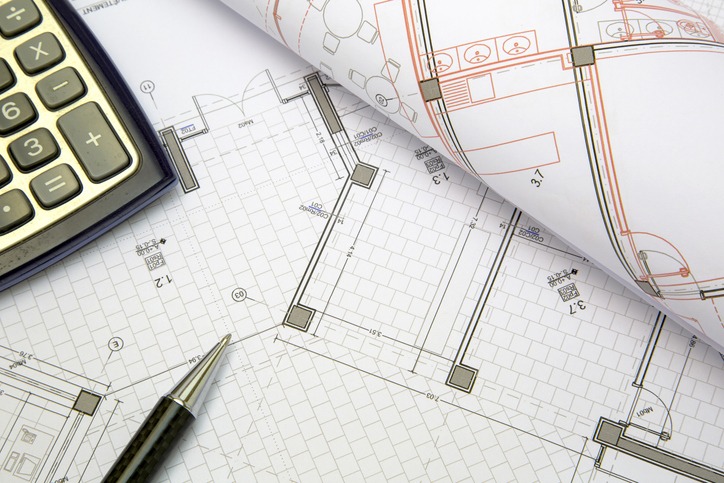Embarking on a renovation project is an exciting endeavour that promises to enhance the functionality and aesthetics of a property. However, navigating the regulatory landscape of construction is equally important to ensure that the renovation is executed safely, efficiently, and in compliance with local laws. Building permits play a central role in this process, serving as legal authorization for specific construction activities. In this guide, we’ll delve into the most common types of building permits and highlight their significance for both renovation contractors and homeowners in Canada.
1. Building Permit
A building permit is perhaps the most fundamental type of permit required for construction or renovation projects. This permit is necessary for any significant alteration, addition, or new construction to a building’s structure. It covers a wide range of projects, including but not limited to:
– Additions: Adding new rooms, extending existing spaces, or constructing additional floors.
– Structural Changes: Modifying load-bearing walls, altering the foundation, or changing the roof structure.
– Interior Remodels: Renovating kitchens, bathrooms, or other interior spaces that involve structural changes.
– New Construction: Building a new structure on a property, such as a garage, shed, or secondary dwelling unit.
Renovation contractors must obtain a building permit before commencing work on projects that fall under these categories. Homeowners should also be aware of the need for a building permit to ensure that their renovation is conducted legally and safely.
2. Plumbing Permit
A plumbing permit is necessary for any plumbing-related work conducted during a renovation. This includes activities such as:
– Installing New Plumbing Fixtures: Adding sinks, toilets, bathtubs, or showers.
– Modifying Plumbing Systems: Altering water supply lines, drainage systems, or venting systems.
– Replacing Water Heaters: Installing new water heaters or making changes to the existing setup.
Renovation contractors and homeowners should secure a plumbing permit to ensure that the plumbing work meets building codes and regulations, preventing potential issues with water supply, drainage, and safety.
3. Electrical Permit
An electrical permit is mandatory for any electrical work carried out during a renovation. This includes:
– Adding Electrical Outlets: Installing new outlets, switches, or light fixtures.
– Electrical Upgrades: Upgrading the electrical panel or wiring to accommodate increased power demands.
– Installing Appliances: Adding electrical connections for appliances like stoves, ovens, and dishwashers.
Renovation contractors must adhere to electrical safety standards outlined in the Canadian Electrical Code when obtaining an electrical permit. Homeowners should prioritize electrical safety by ensuring that all electrical work is carried out by licensed professionals and is compliant with local regulations.
4. Demolition Permit
A demolition permit is essential when a renovation involves the partial or complete demolition of a structure. This could encompass:
– Removing Walls: Demolishing non-load-bearing walls to open up space.
– Taking Down Structures: Demolishing a garage, shed, or other detached structure.
– Gutting Interior Spaces: Stripping the interior of a building to prepare for a complete remodel.
Both renovation contractors and homeowners should secure a demolition permit to ensure that the demolition process is conducted safely, avoiding potential hazards and adhering to environmental regulations.
5. Occupancy Permit
An occupancy permit, also known as a use and occupancy permit, is required before a newly renovated space can be occupied. This permit ensures that the construction work has been completed in accordance with approved plans and meets building codes and safety standards. It encompasses factors such as fire safety, accessibility, and structural integrity. Renovation contractors are responsible for obtaining an occupancy permit before homeowners can move into the renovated space.
6. Environmental Permits
Certain renovation projects, particularly those that involve environmental impact, may require specialized environmental permits. These permits are designed to regulate projects that could affect air and water quality, wildlife habitats, or other ecological factors. Examples of such projects could include building near wetlands, excavating near water bodies, or disturbing asbestos-containing materials. Renovation contractors should be well-versed in the local environmental regulations and obtain the necessary permits for projects that fall under this category.
In Conclusion
Building permits are a cornerstone of responsible and legal renovation projects. Whether you’re a renovation contractor overseeing the construction process or a homeowner embarking on a renovation journey, understanding the most common types of building permits is essential. These permits ensure that renovations are carried out safely, adhere to building codes, and contribute to the overall well-being of the community.
When working with renovation contractors, ensure that they are well-versed in the permit requirements for your specific project. By obtaining the necessary permits, you can transform your renovation vision into a reality that not only enhances your property’s value and appeal but also upholds the highest standards of safety and compliance.
